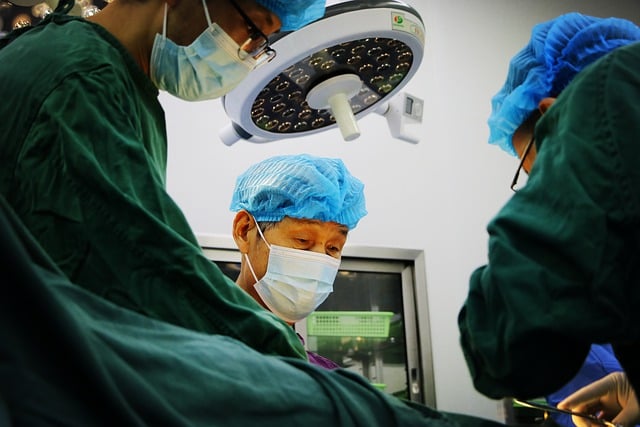Orthopedic surgery is a specialized branch of medicine that focuses on diagnosing, treating, and preventing conditions related to the musculoskeletal system, which includes bones, joints, ligaments, tendons, and muscles. This form of surgery is vital for patients suffering from chronic pain, injuries, or deformities, helping them regain mobility and improve their quality of life.
This comprehensive guide will delve into the types of orthopedic surgeries, the procedures involved, and the recovery process, offering valuable insights for patients in India. Understanding these aspects can empower individuals to make informed decisions about their treatment options.
What is Orthopedic Surgery?
Orthopedic surgery encompasses a wide range of procedures aimed at treating conditions that affect the musculoskeletal system. These surgeries may involve repairing fractures, replacing joints, correcting deformities, or addressing chronic pain caused by degenerative conditions.
- Orthopedic surgeons are highly trained specialists with expertise in diagnosing and treating musculoskeletal disorders.
- Common reasons for orthopedic surgery include arthritis, trauma, sports injuries, and congenital conditions.
- These procedures are performed using advanced techniques, including minimally invasive methods and robotic assistance, to ensure precision and faster recovery.
Types of Orthopedic Surgery
1. Joint Replacement Surgery
- Purpose: Replacing damaged joints with prosthetic implants to restore mobility and reduce pain.
- Common Areas: Knee, hip, and shoulder replacements are the most frequent procedures.
- Benefits: Offers long-term relief from conditions like osteoarthritis and rheumatoid arthritis.
Joint replacement surgery has transformed the lives of many patients, enabling them to resume their daily activities without discomfort.
2. Arthroscopic Surgery
- Purpose: Minimally invasive procedure to diagnose and treat joint issues.
- Common Uses: Treating ligament tears, removing loose cartilage, and repairing joint damage.
- Advantages: Smaller incisions, reduced pain, and quicker recovery compared to traditional surgeries.
Arthroscopic surgery is particularly popular among athletes for its ability to address sports-related injuries effectively.
3. Spinal Surgery
- Purpose: Addressing spinal disorders such as herniated discs, scoliosis, and spinal stenosis.
- Types: Spinal fusion, laminectomy, and disk replacement are common procedures.
- Outcome: Improves spinal stability, alleviates nerve compression, and restores mobility.
Spinal surgery often involves a thorough evaluation to ensure the best approach for the patient’s condition.
4. Trauma Surgery
- Purpose: Repairing fractures, dislocations, and soft tissue injuries resulting from accidents.
- Techniques: Internal fixation with plates, screws, or rods to stabilize the affected area.
- Significance: Ensures proper healing and minimizes the risk of complications.
Trauma surgery is critical for restoring function and preventing long-term disabilities after severe injuries.
5. Deformity Correction Surgery
- Purpose: Addressing congenital or acquired deformities in bones and joints.
- Examples: Correcting bowed legs, clubfoot, or spinal deformities like kyphosis.
- Benefits: Enhances mobility, improves appearance, and boosts confidence.
Deformity correction surgery often requires precise planning and advanced techniques to achieve optimal results.

CONSULT DR.VIDYASAGAR HOSPITAL TODAY FOR BEST ORTHOPEDIC SPECIALIST IN KADAPA.
Pre-Surgical Preparation for Orthopedic Surgery
1. Medical Evaluation
- Comprehensive assessment of the patient’s medical history and current health status.
- Diagnostic tests such as X-rays, MRIs, and blood tests to plan the surgery effectively.
2. Lifestyle Adjustments
- Stopping smoking and alcohol consumption to improve healing.
- Maintaining a healthy weight to reduce stress on joints and bones.
3. Prehabilitation
- Strengthening muscles and improving flexibility through physiotherapy before surgery.
- Prehabilitation helps patients recover faster and enhances surgical outcomes.
The Surgical Process
1. Anesthesia
- Administered based on the type and complexity of the surgery.
- Options include general anesthesia, regional anesthesia, or local anesthesia.
2. Surgical Techniques
- Minimally invasive methods such as arthroscopy involve small incisions and specialized instruments.
- Traditional open surgeries may be required for complex cases, such as major trauma or deformity correction.
3. Post-Surgical Care
- Immediate monitoring in the recovery room to ensure vital signs are stable.
- Pain management with medications and supportive therapies.
Recovery After Orthopedic Surgery
1. Hospital Stay
- Duration depends on the type of surgery, typically ranging from a day to a week.
- Patients are closely monitored for any signs of complications.
2. Rehabilitation
- Physiotherapy: Focuses on restoring strength, flexibility, and mobility.
- Occupational Therapy: Helps patients regain independence in daily activities.
3. Home Care
- Adhering to the doctor’s instructions regarding wound care, medications, and follow-up visits.
- Making necessary modifications at home to ensure safety during recovery.
Factors Influencing Recovery
1. Patient’s Age and Health
- Younger and healthier individuals tend to recover faster.
- Pre-existing conditions such as diabetes or heart disease may prolong the recovery period.
2. Type of Surgery
- Minimally invasive procedures generally have shorter recovery times compared to open surgeries.
- Complex surgeries like spinal fusion may require extended rehabilitation.
3. Commitment to Rehabilitation
- Active participation in physiotherapy and adherence to prescribed exercises are crucial.
- Regular follow-ups with the orthopedic surgeon ensure a smooth recovery process.
Robotic Knee Surgery at Vidyasagar Hospital
Vidyasagar Hospital in Kadapa is renowned for its expertise in robotic knee surgery, a cutting-edge procedure that combines advanced technology with surgical precision. This technique offers numerous benefits:
- Enhanced Accuracy: Robotic systems assist surgeons in achieving precise alignment and placement of implants.
- Minimally Invasive: Smaller incisions reduce pain, blood loss, and scarring.
- Faster Recovery: Patients experience quicker rehabilitation and return to daily activities.
The hospital’s commitment to excellence and patient care makes it a trusted choice for orthopedic treatments.
Why Choose Vidyasagar Hospital for Orthopedic Surgery?
1. Expertise and Experience
- A team of highly skilled orthopedic surgeons with extensive experience.
- Specialization in complex procedures such as robotic-assisted surgeries and deformity corrections.
2. State-of-the-Art Facilities
- Equipped with the latest diagnostic and surgical technologies.
- Dedicated units for pre-surgical evaluation, surgery, and post-operative care.
3. Patient-Centric Approach
- Personalized treatment plans tailored to each patient’s needs.
- Comprehensive support throughout the treatment journey.
4. Affordable Care
- High-quality medical services at competitive rates.
- Transparent pricing with no hidden costs.
Conclusion
Orthopedic surgery plays a vital role in restoring mobility, reducing pain, and improving the quality of life for individuals suffering from musculoskeletal issues. Understanding the types, procedures, and recovery process empowers patients to make informed decisions about their treatment.
Vidyasagar Hospital in Kadapa is a trusted name in orthopedic care, offering advanced treatments and exceptional patient support. From joint replacements to robotic knee surgery, the hospital’s expertise ensures the best outcomes for its patients. Consult the experienced team at Vidyasagar Hospital today for comprehensive orthopedic solutions in Andhra Pradesh, India.



Recent Comments